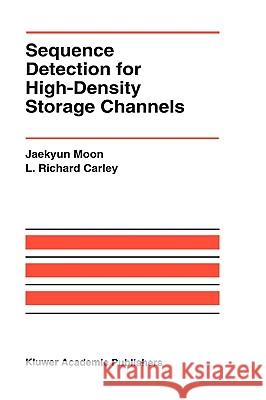Sequence Detection for High-Density Storage Channels » książka
Sequence Detection for High-Density Storage Channels
ISBN-13: 9780792392644 / Angielski / Twarda / 1992 / 153 str.
Magnetic data storage can be viewed as a data communication system. This is not a sUlprising view, considering that data storage is essentially the transfer of data between different times. The past decade has indeed seen rapidly growing interest in applying improved coding and detection techniques to magnetic data storage, a traditional approach to enhance performance of communication channels. Since its inception in the 1930's, the magnetic recording industry has achieved impressive progress in data capacity. This has been made possible mainly by innovations and advances in heads and media design. However, as the demand for higher storage capacity continues in the modem information era, a need arises to explore other possibilities to help meet the ever-growing demand. Advanced coding and detection are one such possibility, providing an efficient, cost-effective means to increase data capacity. In fact, with the advent of modem Ie technology which has enabled real-time implementation of increasingly complex signal processing algorithms, advanced coding and detection are rapidly becoming a major issue in the development of improved data storage products. While there have been remarkable advances in recent years in the areas of both coding and detection for data storage, this book focuses only on data detection, or the processing of readback waveforms to reproduce stored data, in conjunction with the traditional modulation coding method called run length-limited or (d, k) coding."











